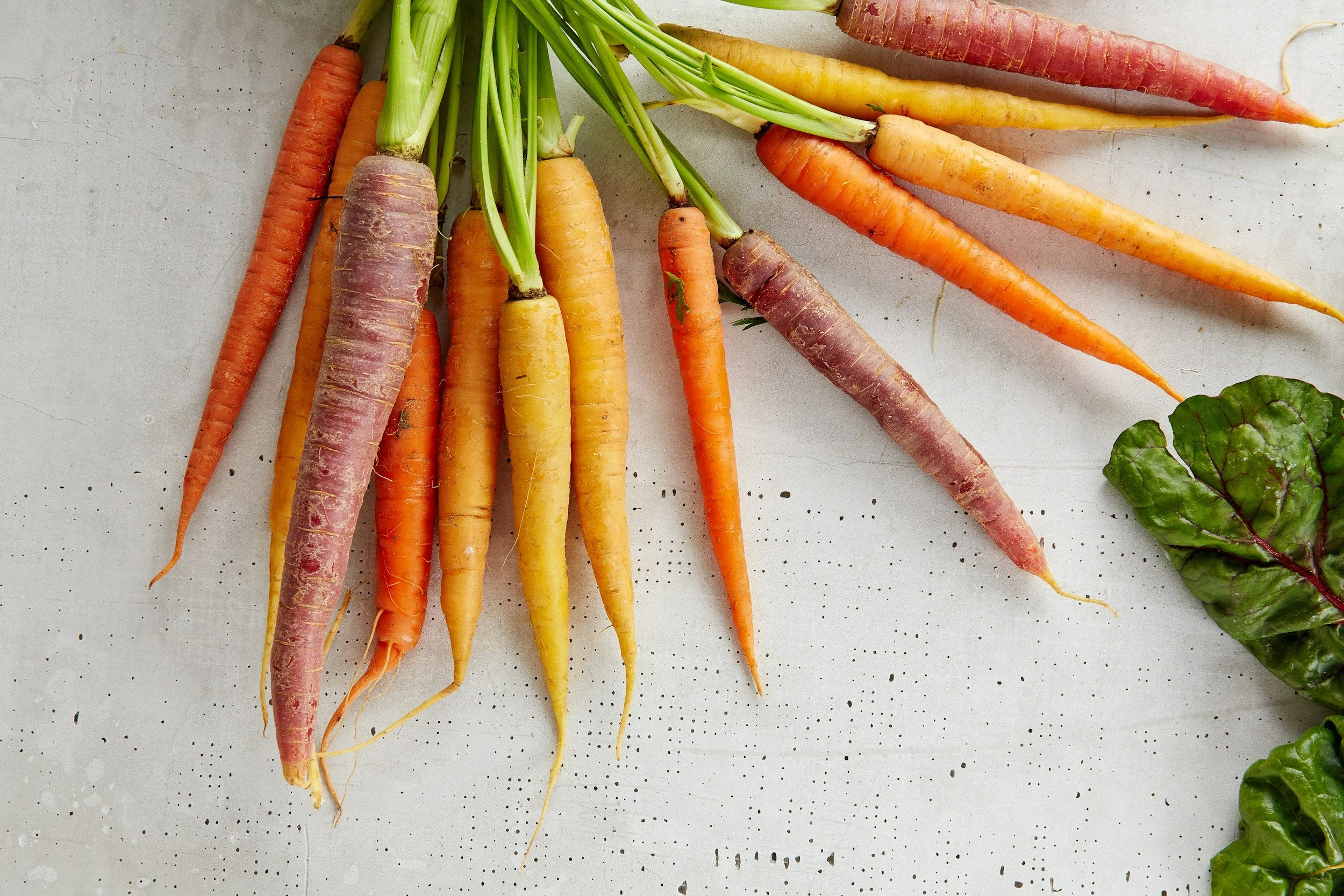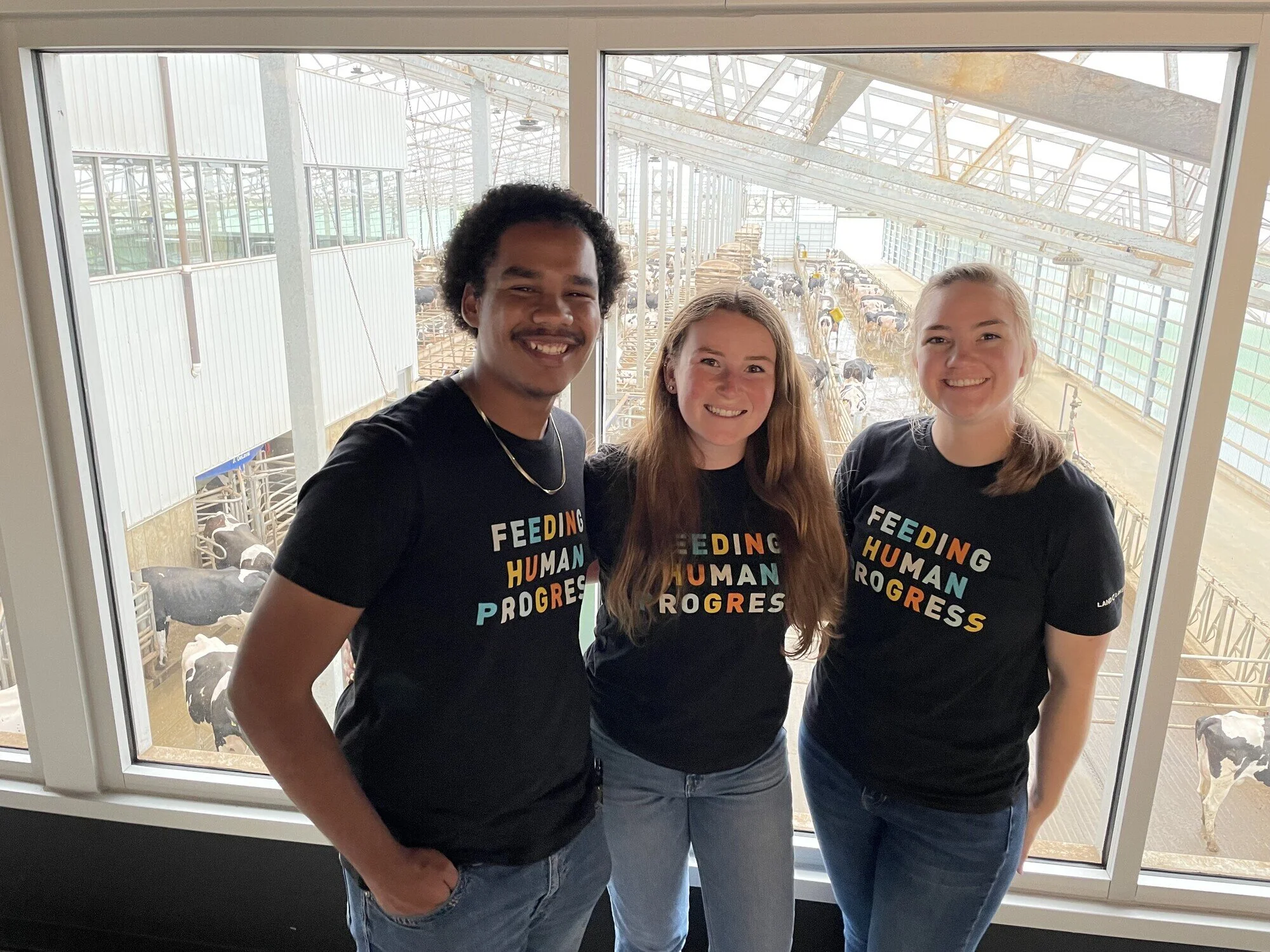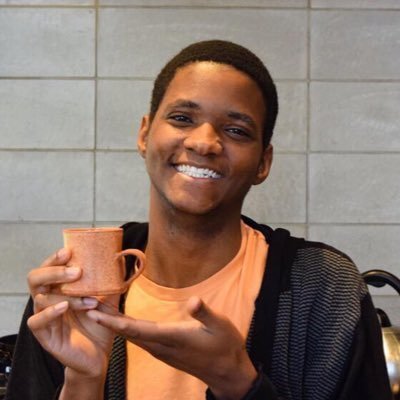
Recently published news and opinions from Food Recovery Network
Getting Involved Leads to New Opportunities: K-State Chapter President Alesha Bergner's FRN Story
“Ignoring your passion is slow suicide. Never ignore what your heart pumps for.” -Kevin Claiborne.
There have been many experiences this year that have made my heart pump, even amid a global pandemic. My work with the Food Recovery Network (FRN) chapter of Kansas State University and my Global Food Challenge internship with Land O’Lakes are two significant examples!
As a part of FRN, I’ve always loved the opportunity to serve my community while working with my peers who are as passionate as I am about food security. Typically, our FRN chapter would recover food from the athletic dining hall on campus and safely deliver the leftovers to Common Table, an organization who hosts community meals every weeknight. When things began shutting down in March 2020, we realized our operation handling food was also going to have to pause and adjust. Over the school year, we stayed active and hopeful as we worked to reconnect with our partners and continue advocating for food security on our campus and in our community. I was able to build new relationships that were helpful when our FRN chapter recovered over 700 pounds of food in one week from students as they moved from the dorms. As an FRN volunteer and leader, I’ve realized my passion for food security, grown my networking skills, met so many new and interesting people, and directly worked to educate and serve my community!
FRN has also instilled in me the courage and passion to search bigger – to find more ways I can learn and make a difference. It led me to Land O’Lakes and the Global Food Challenge internship per the recommendation of an FRN peer. I’d shared my hopes to reach more people and broaden my perspective, and he said the GFC internship would be the perfect fit. This was absolutely right – my summer internship with Land O’Lakes has been a cross-functional experience with diverse exposure of learning and leadership development as I connect with students and leaders across the nation who are working to create a better world. Through this internship, I participated in the Congressional Hunger Center’s Zero Hunger Summer Seminar Series and met with passionate people of diverse backgrounds who all bring different perspectives to the conversation. We also traveled to Indiana to learn about the variety of agriculture in the Midwest and strength of the cooperative system. Furthermore, my team’s projects with Venture37, an affiliated international development nonprofit, have opened my mind to a broader understanding of food systems around the world.
This fall, I return to K-State to begin my third year as an Agricultural Technology Management and Global Food Systems Leadership student. My Global Food Challenge internship will end in August, but I’ll be intentional to stay in contact with my new connections throughout the school year and beyond. Through these experiences, I know how prevalent food insecurity is, even in my own community, and I’ll keep working with my peers to make a difference. I’m excited to lead as president of FRN at K-State because I know I will have the opportunity to make a difference and directly help my community!
You can make an impact on food security too through FRN! I encourage you to attend our upcoming webinars that will feature current chapter leaders (like me!) to give you the inside scoop of what it’s like being a part of the network and starting a new a chapter. Check out the first informational session on Instagram Live here, and stay tuned for the next one in late September. Sometimes it’s hard to know what exactly your heart is pumping for, but when you find those moments that give you goosebumps and get you excited, make note of it, and keep chasing your passions!
Starting Strong💪: chapter resources, opportunities to connect with other student leaders, and more!
Resources for Official FRN Chapters
Whether your chapter will recover food, advocate, or volunteer to support your community, FRN has got you covered! Check out our revamped Student Resources webpage to find all the guides and information you need to kick off your programming this semester, and to maintain your active status in the network.
*Please note that student resources are no longer housed on The Portal. Instead, all resources are available on our website for easy access.
FRN National will also continue to produce blog posts to highlight the topics our chapters want to hear about the most, such as top tips for chapter recruitment and how to start gleaning.
The best way to catch the latest blogs is to sign up for our newsletter and follow @foodrecovery on social media. We always share the most timely information through our network-wide communication channels.
Connect with Fellow Chapter Leaders
As part of our continued effort to encourage and strengthen your leadership skills as an FRN student, this year FRN National will host a series of virtual calls to give chapter leaders the opportunity to connect with one another.
Whether you’re facing new or unexpected challenges, or you have personal experience and advice to offer, we want to make sure all chapter leaders have the opportunity to listen, share, and learn from each other.
The first student leader call kicks off on September 2, 2021. Register now to meet fellow FRN leaders and join the conversation!
Still Seeking Support?
We’re here for you! If you have any questions, can’t quite find what you’re looking for, or just want some individualized support, please get in touch with our team. You can connect with us via email (programs@foodrecoverynetwork.org), over the phone (240-615-8813), or through social media (IG, TW, FB).
Atlanta Gleaning Pilot #1 Results: 15,000 pounds in 3 weeks
As promised in my last blog, and consistent with FRN’s commitment to transparency in our learning, I wanted to share the surprising results of our Atlanta Local Gleaning Pilot #1. As a refresher, FRN will be running three local gleaning pilots throughout the summer and fall to help us best determine, how can we move the most fresh produce, to feed the people in the most need, fastest?
Pilot #1 primarily consisted of paying local small farmers directly for the labor to glean surplus produce and transport it to Atlanta hunger-fighting partners in the areas with the most need (as determined by the Atlanta Mayor’s Office of Resilience). Our hypothesis was that across the twelve weeks of summer (June-August), we could move about 10,000 pounds of food. What we found was striking.
We moved 15,000 pounds of food in three weeks.
Here is what we learned:
Learning #1: It takes time to find the right partners to accomplish our goal. Our outreach to local farmers began in earnest in January 2021 and we thought it would take about 2-3 months to find a farming partner. We finally found our farming partner, 5 A’s Veggies & Produce of Waynesboro, GA, in May, about double the time we anticipated.
Learning #2: While we found many hunger-fighting nonprofits willing to take the surplus food, they were not necessarily in the areas of the highest need. Nonprofit partners we prioritized, which were located in the areas of the highest need for access to more fresh produce (according to Feeding America), were often staffed by volunteers and did not necessarily have the infrastructure (i.e. staff to receive food on an “off day”, refrigeration, ability to move the particular volume of food within a given day, etc.) to amend itself to a pilot program.
Learning #3: A community partner is essential. When we shared our challenge of finding a nonprofit partner within the areas of the greatest need with both our partners the Atlanta Mayor’s Office of Resilience and EPA Southeast Office, we had three new nonprofit recipients identified within 72 hours. This would not have been possible without those closest to the community being able to contact community leaders whom FRN would otherwise not have known.
Want to know more about our farming partner? Or our nonprofit partners on the ground in Atlanta? Check back for more in a few weeks and we will keep you posted on the results of Pilots #2 and #3.
Building a Compassionate Workplace
Each month I facilitate conversations with inspiring individuals about how we can build a food system that feeds everyone. These conversations often have food at the forefront because food is a part of each and every one of our lives and is at the core of FRN’s work, but they also explore other topics that intertwine with and impact our food system. With this fuller picture we can begin to understand why 34 million Americans currently do not consistently have access to the food they deserve, and how we can work to address the structural inequality that makes this possible.
On July 20, 2021 I had the honor of talking to three incredible humans about the role of compassion in our work. As I note in the video, compassion should be a key element of how we conduct our work, and during times of duress or constant strain, compassion is sometimes lacking. When we lead with compassion, we open ourselves to more meaningful and comprehensive conversations; we can perform better as teams; and ultimately, we can open our collective eyes, hearts and minds to challenge a system that wants us to believe that 34 million people living without the food they deserve is simply a by-product of our society. We cannot be complacent about a food system that allows so many people to suffer, and conversations like the one I had with Dominique McMillan, Matt Scott, and Corey Loftus are key to inspiring us to act. Below are the themes from each speaker and their call to action for each of you. My hope is that you read their thoughts below, share this with others, watch our video (even if it’s just parts of the conversation) and my call to action to you is, add their calls to action to your to-do list.
Dominique: We must understand our past to better map our future. In the spirit of compassion, no workplace extends to all of us, but our relationships do. My own journey involves looking for and spreading compassion through my personal experiences to foster a sense of belonging among others. Having had to learn from others, now the act of spreading compassion is rooted in loving others as I love myself. Call to action: Check your voter registration because you may be surprised to find you’re not registered. Spend time thinking about who you are, and what you are called to be.
Matt: I use the tool of asking questions to develop and deepen empathy, and it’s a way to be in community with and for others, especially in spaces that may not always be overtly open to me. People are all so different and it rests upon all of us to provide the space for others to tell their own stories. When people can tell their own stories and when people are curious about those stories, we create and foster safe spaces. We all deserve that. Call to action: Think about how you understand your own system of listening. What does listening look like for you? Asking questions, hosting conversations?
Corey: Rituals are distinct from habits and standard operating procedures and we should provide space for them in the workplace. Rituals can help bring a feeling of openness, space, and transparency to our work together. By engaging in rituals within the workplace, you are expressing a shared belief in whatever the rituals signify. It’s also a practice done for internal advancement and enables people to play around with different social structures. Call to action: Create a new ritual for yourself that can help you reach something, whether that is to calm you down, to focus you, etc.
Watch the full conversation here —
Thank you to Dominique, Matt, and Cory for an incredible conversation. I hope it provides you with stories and tools to bring to your own workplace to reignite or further fan your flame of compassion like it did for me.
The podcasts our executive director tunes into for knowledge and inspiration
As part of my equity practice, I continue to examine how I view the world and navigate within it by listening to voices from a variety of communities that tell stories and share information I wouldn’t hear otherwise. These voices are not yet mainstream and are from the perspective of what some might call “marginalized” people. However, I don’t want to de-emphasize their power or the space they hold in the core of my practice by using this minimizing term. Here I’ll share two podcasts spotlighting powerful and thought-provoking voices that are sources of inspiration, knowledge, and perspective for me and that I weave into my continuous learning journey.
The Red Nation podcast is incredible. These stories are from the perspective of Native people from all over the country who share their stories on topics that may sound familiar to you, but center the experiences and knowledge of their ancestors, their elders and themselves. On its website, The Red Nation it describes itself as “a coalition of Native and non-Native activists, educators, students, and community organizers advocating Native liberation. We formed to address the marginalization and invisibility of Native struggles within mainstream social justice organizing, and to foreground the targeted destruction and violence towards Native life and land.” Many of the topics covered include accounts of abuse and violence inflicted upon Native people, so listeners should be aware of that.
Black in Appalachia hosts Enkeshi El-Amin and Angela Dennis invite us along on their journey to explore their Appalachian roots on their podcast. In one episode we learn about “sundown towns'', the reality of which I think helps paint a picture of a very specific part of the experience of African-American people living in the South during Jim Crow and the Great Migration (To learn more about the Great Migration, I also highly recommend Isabel Wilkerson’s masterfully researched, Pulitzer prize-winning book, “The Warmth of Other Suns.”). Black in Appalachia’s website notes, “Having long been in this region, Black Appalachians remain mostly invisible, while the dominant narratives of Appalachia depict an overwhelming, white cultural homogeneity. The Black in Appalachia Podcast challenges these misconceptions by highlighting how Black families have shaped and have been shaped by the region.”
At FRN’s all-staff meetings, the team and I often start our meetings by sharing what we are reading, what podcasts we’re listening to, or what tv shows we are watching, and I am always so impressed with the breadth of learning that the team dives into in their time outside of work. What podcasts, books or shows inspire you? We’d love to know! Share with us on social media!













